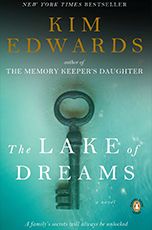 Recently, Design writer Jude Stewart stopped by the NPR studios to talk about her new book ROY G. BIV: An Exceedingly Surprising Book About Color. The author offers a new perspective on the colors which surround us daily and how different cultures can view and describe the same colors differently. Regarding the relationship between color and language, the book reveals a fascinating link among many languages around the world. Even diverse languages, that share no common root, develop names for colors in the same order: “black, white, red, green and yellow, blue, and then brown.” Read more…
Recently, Design writer Jude Stewart stopped by the NPR studios to talk about her new book ROY G. BIV: An Exceedingly Surprising Book About Color. The author offers a new perspective on the colors which surround us daily and how different cultures can view and describe the same colors differently. Regarding the relationship between color and language, the book reveals a fascinating link among many languages around the world. Even diverse languages, that share no common root, develop names for colors in the same order: “black, white, red, green and yellow, blue, and then brown.” Read more…
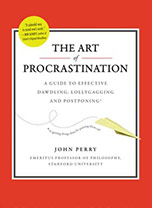 Though procrastination is often seen as a negative trait, Stanford Philosophy professor, John Perry, argues for a more positive view in his new book The Art of Procrastination: A Guide to Effective Dawdling, Lollygagging and Postponing (Workman Publishing Company, 112pgs). During an interview on NPR‘s All Things Considered, the author draws a distinction between being lazy and being a procrastinator. “So, it’s a kind of a paradox. If I get all this stuff done, how can that be when I’m a crummy procrastinator? And it occurred to me, well, there’s a difference between procrastinating and being lazy — I’m not lazy. I do a lot of stuff, as long as it’s a way of not doing something else that I’m supposed to do,” he explains. Read more…
Though procrastination is often seen as a negative trait, Stanford Philosophy professor, John Perry, argues for a more positive view in his new book The Art of Procrastination: A Guide to Effective Dawdling, Lollygagging and Postponing (Workman Publishing Company, 112pgs). During an interview on NPR‘s All Things Considered, the author draws a distinction between being lazy and being a procrastinator. “So, it’s a kind of a paradox. If I get all this stuff done, how can that be when I’m a crummy procrastinator? And it occurred to me, well, there’s a difference between procrastinating and being lazy — I’m not lazy. I do a lot of stuff, as long as it’s a way of not doing something else that I’m supposed to do,” he explains. Read more…
 Modern American society seems to prize the extrovert, those with brash, outgoing personalities often climb to the tops of both corporate and social ladders. Yet, as former attorney, Susan Cain, writes in her new book Quiet: The Power of Introverts in a World That Can’t Stop Talking, introverts have their own subtle advantages. The Harvard law school alumna viewed her own cautious manner as a sort of hindrance in her professional life, until research into the introverted personality helped her realize that many traits that society views as faults are actually very powerful attributes. Quiet, the result of her research, draws from personal interviews, as well as the latest finds in neuroscience and psychology, and works to correct misconceptions of introverts and empower them to embrace their nature. Read more…
Modern American society seems to prize the extrovert, those with brash, outgoing personalities often climb to the tops of both corporate and social ladders. Yet, as former attorney, Susan Cain, writes in her new book Quiet: The Power of Introverts in a World That Can’t Stop Talking, introverts have their own subtle advantages. The Harvard law school alumna viewed her own cautious manner as a sort of hindrance in her professional life, until research into the introverted personality helped her realize that many traits that society views as faults are actually very powerful attributes. Quiet, the result of her research, draws from personal interviews, as well as the latest finds in neuroscience and psychology, and works to correct misconceptions of introverts and empower them to embrace their nature. Read more…
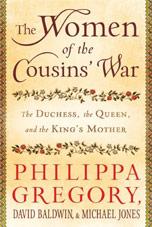 Last Fall, fans of British history and historical fiction were twice blessed with new books from bestselling historical novelist Philippa Gregory. Esteemed historians David Baldwin and Michael Jones joined the author in writing The Women of the Cousins’ War (Touchstone, 352pgs), a book of factual essays on three influential female figures during the events of England’s Wars of the Roses (1455–1485). Baldwin writes of Elizabeth Woodville, wife of Edward IV, who was noted as being the first commoner in England to marry a king for love. Jones, outlines the life of Margaret Beaufort, mother of Henry VII, and one of the lesser known women of the Tudor dynasty. Gregory presents the early life of Jacquetta, duchess of Bedford, who at one time stood trial for witchcraft. Along with this non-fiction account, Gregory also published The Lady of the Rivers (Touchstone, 464pgs), a fictional telling of Jacquetta’s life. Read more…
Last Fall, fans of British history and historical fiction were twice blessed with new books from bestselling historical novelist Philippa Gregory. Esteemed historians David Baldwin and Michael Jones joined the author in writing The Women of the Cousins’ War (Touchstone, 352pgs), a book of factual essays on three influential female figures during the events of England’s Wars of the Roses (1455–1485). Baldwin writes of Elizabeth Woodville, wife of Edward IV, who was noted as being the first commoner in England to marry a king for love. Jones, outlines the life of Margaret Beaufort, mother of Henry VII, and one of the lesser known women of the Tudor dynasty. Gregory presents the early life of Jacquetta, duchess of Bedford, who at one time stood trial for witchcraft. Along with this non-fiction account, Gregory also published The Lady of the Rivers (Touchstone, 464pgs), a fictional telling of Jacquetta’s life. Read more…
Categories: Biography, Fiction, Historical Fiction, News, Non-Fiction Tags: Britain, British monarchy, David Baldwin, duchess of Bedford, history, Jacquetta, Michael Jones, Philippa Gregory, Wars of the Roses
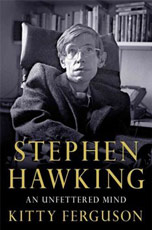 By Kitty Ferguson
By Kitty Ferguson
Palgrave Macmillan | 320pgs
Release Date: January 3, 2012
Science writer Kitty Ferguson builds a revealing profile of physicist Stephen Hawking’s early life in the new book Stephen Hawking: An Unfettered Mind. Hawking, best known for his research in the areas of theoretical cosmology and quantum gravity, is one of the world’s most renown scientists. With his lectures and writings, he has made highly complicated scientific theories interesting and palatable to the general public. “It’s not dumbing down [science]; it’s really making it accessible, hopefully, to a lot of people,” explains the author in an interview with NPR’s Fresh Air. Her book focuses on Hawking’s early childhood through his undergraduate and graduate work at Oxford and Cambridge respectively, and his diagnosis of ALS disease in the early 1960′s. At the time, doctors predicted he would not survive his 20′s, but the physicist has beaten the odds, and will celebrate his 70th birthday on January 8th. Read more…
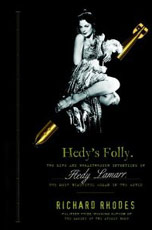 By Richard Rhodes
By Richard Rhodes
Doubleday | 272pgs
Release Date: November 29, 2011
Summary:
Award winning author Richard Rhodes tells the surprising true story of the scientific contribution actress Hedy Lamarr made to the war effort during the 1940′s in his new book Hedy’s Folly: The Life and Breakthrough Inventions of Hedy Lamarr, the Most Beautiful Woman in the World. Beneath the surface, considerably more than just a pretty face, the sexy starlet had harbored a deep interest in all things mechanical from a very early age. The growing atrocities in Europe and an introduction to musician George Antheil, who shared Larmarr’s penchant for invention, prompted the pair to tackle the unlikely subject of a torpedo guidance system. They devised a system in which a plane could control a torpedo remotely, with each device maintaining communication while simultaneously cycling through different radio frequencies, preventing the enemy from breaking contact by jamming a single channel. This idea, known as spread-spectrum radio, was decades ahead of its time, and could not be implemented with the rudimentary torpedo technology of World War II, but is the basis for much of today’s widespread technology, such as WiFi, Bluetooth and GPS. Read more…
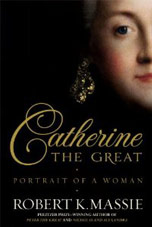 Pulitzer Prize winning biographer Robert K. Massie separates historical rumor from documented fact with his new book Catherine the Great: Portrait of a Woman (Random House, 656pgs). Massie has proven himself to be an enthusiast of all things Russian with his previous books, including the bestselling Nicholas and Alexandra and Peter the Great, and according to a review in USA TODAY, his enthusiasm does not wane with this new subject. Catherine, born into minor German nobility and married off to her second cousin, the heir to the Russian throne, at 16, is affectionately portrayed as intelligent, driven and forthright. Upon her marriage, she begins a rigorous self-education, learning Russian, adopting her new homeland’s Orthodox faith and devouring books on all subjects. Her actions endear her to the Russian people, though the citizenry feel quite the opposite about Peter, her arrogant and cruel husband. Just months into Peter’s reign, the reviled czar is overthrown and 33 year-old Catherine is enthroned, though the book posits that it is unlikely she orchestrated the coup. Read more…
Pulitzer Prize winning biographer Robert K. Massie separates historical rumor from documented fact with his new book Catherine the Great: Portrait of a Woman (Random House, 656pgs). Massie has proven himself to be an enthusiast of all things Russian with his previous books, including the bestselling Nicholas and Alexandra and Peter the Great, and according to a review in USA TODAY, his enthusiasm does not wane with this new subject. Catherine, born into minor German nobility and married off to her second cousin, the heir to the Russian throne, at 16, is affectionately portrayed as intelligent, driven and forthright. Upon her marriage, she begins a rigorous self-education, learning Russian, adopting her new homeland’s Orthodox faith and devouring books on all subjects. Her actions endear her to the Russian people, though the citizenry feel quite the opposite about Peter, her arrogant and cruel husband. Just months into Peter’s reign, the reviled czar is overthrown and 33 year-old Catherine is enthroned, though the book posits that it is unlikely she orchestrated the coup. Read more…
 In 1942 Lev Gleason, a small publishing firm, released a new true crime comic called Crime Does Not Pay, co-edited, written and illustrated by Bob Wood and Charles Biro. The stories recounted actual crimes perpetrated by many of the day’s high profile mobsters including “Baby Face” Nelson and Charles “Lucky” Luciano. They were meant to be morality tales, though the criminals’ violent escapades and erotic encounters were thrillingly detailed, often to dramatic effect, and the moral of the story was usually relegated to a brief concluding paragraph. The mixture of sex and violence was an automatic hit with the American public and circulation of the comics quickly rose into the millions. The editors’ enthusiasm for lurid material, put Crime Does Not Pay on the censors’ radar, and was a contributing factor in the passing of the Comics Code in 1954. According to an article in the Star Tribune, these new, tighter restrictions on comic book content quickly put Crime Does Not Pay and all its imitators out of business. Read more…
In 1942 Lev Gleason, a small publishing firm, released a new true crime comic called Crime Does Not Pay, co-edited, written and illustrated by Bob Wood and Charles Biro. The stories recounted actual crimes perpetrated by many of the day’s high profile mobsters including “Baby Face” Nelson and Charles “Lucky” Luciano. They were meant to be morality tales, though the criminals’ violent escapades and erotic encounters were thrillingly detailed, often to dramatic effect, and the moral of the story was usually relegated to a brief concluding paragraph. The mixture of sex and violence was an automatic hit with the American public and circulation of the comics quickly rose into the millions. The editors’ enthusiasm for lurid material, put Crime Does Not Pay on the censors’ radar, and was a contributing factor in the passing of the Comics Code in 1954. According to an article in the Star Tribune, these new, tighter restrictions on comic book content quickly put Crime Does Not Pay and all its imitators out of business. Read more…
 Apple fanatics around the world are hotly anticipating the arrival of Steve Jobs (Simon & Schuster, 656pgs) the biography by Walter Isaacson, which hits shelves on Monday October 24. Isaacson, a high-profile biographer, was granted Jobs’ full cooperation with the book and was allowed exclusive access to the highly private entrepreneur. The pair met for dozens of interviews, the last taking place a few short weeks before the creative visionary’s passing on October 5. In an interview with the Associated Press, Isaacson provides an early glimpse into Jobs’ private life. Their conversations touched on many subjects, including the impetus for the Apple name, which Jobs came up with after visiting an apple orchard during his experimentation with a fruitarian diet. He felt the name was “fun, spirited and not intimidating.” Read more…
Apple fanatics around the world are hotly anticipating the arrival of Steve Jobs (Simon & Schuster, 656pgs) the biography by Walter Isaacson, which hits shelves on Monday October 24. Isaacson, a high-profile biographer, was granted Jobs’ full cooperation with the book and was allowed exclusive access to the highly private entrepreneur. The pair met for dozens of interviews, the last taking place a few short weeks before the creative visionary’s passing on October 5. In an interview with the Associated Press, Isaacson provides an early glimpse into Jobs’ private life. Their conversations touched on many subjects, including the impetus for the Apple name, which Jobs came up with after visiting an apple orchard during his experimentation with a fruitarian diet. He felt the name was “fun, spirited and not intimidating.” Read more…
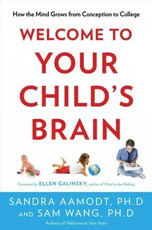 Princeton University associate professor of neuroscience, Dr. Sam Wang, and Dr. Sandra Aamodt, former editor of the prestigious scientific journal Nature Neuroscience, have teamed up to write a second book Welcome to Your Child’s Brain: How the Mind Grows from Conception to College (Bloomsbury USA, 336pgs). Their new work studies the development of the young brain and offers suggestions to parents on fostering intellectual growth and self-control. Even from birth, children’s brains are functioning at a high level. “They really come equipped to learn about the world in a way that wasn’t appreciated until recently,” explains Dr. Aamodt in an interview with NPR. “It took scientists a long time to realize that their brains are doing some very complicated things.” Read more…
Princeton University associate professor of neuroscience, Dr. Sam Wang, and Dr. Sandra Aamodt, former editor of the prestigious scientific journal Nature Neuroscience, have teamed up to write a second book Welcome to Your Child’s Brain: How the Mind Grows from Conception to College (Bloomsbury USA, 336pgs). Their new work studies the development of the young brain and offers suggestions to parents on fostering intellectual growth and self-control. Even from birth, children’s brains are functioning at a high level. “They really come equipped to learn about the world in a way that wasn’t appreciated until recently,” explains Dr. Aamodt in an interview with NPR. “It took scientists a long time to realize that their brains are doing some very complicated things.” Read more…
 Recently, Design writer Jude Stewart stopped by the NPR studios to talk about her new book ROY G. BIV: An Exceedingly Surprising Book About Color. The author offers a new perspective on the colors which surround us daily and how different cultures can view and describe the same colors differently. Regarding the relationship between color and language, the book reveals a fascinating link among many languages around the world. Even diverse languages, that share no common root, develop names for colors in the same order: “black, white, red, green and yellow, blue, and then brown.” Read more…
Recently, Design writer Jude Stewart stopped by the NPR studios to talk about her new book ROY G. BIV: An Exceedingly Surprising Book About Color. The author offers a new perspective on the colors which surround us daily and how different cultures can view and describe the same colors differently. Regarding the relationship between color and language, the book reveals a fascinating link among many languages around the world. Even diverse languages, that share no common root, develop names for colors in the same order: “black, white, red, green and yellow, blue, and then brown.” Read more…









